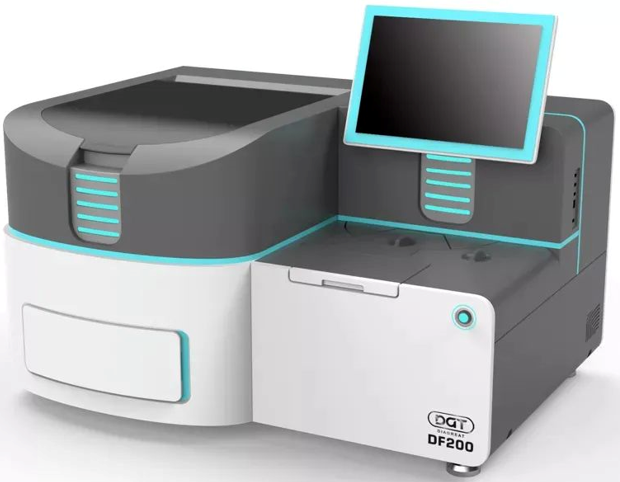Therapeutic Drug Monitoring (TDM) refers to the guidance of pharmacokinetics theory, the application of sensitive and reliable analytical techniques, through the determination of drug exposure, pharmacological markers or drug efficacy indicators in patients, and the use of quantitative pharmacological models, based on the therapeutic window of the drug, formulate an individualized dosing plan suitable for each patient. Its core is individualized drug therapy.
01 Traditional Drug Treatment
The traditional drug treatment is generally a group and empirical treatment of drugs. Doctors select corresponding drugs based on clinical diagnosis, auxiliary examination results and their own clinical experience. This way of treatment ignores individual differences in drug efficacy, and cannot maximize the efficacy of drugs, avoid drug side effects, and cannot guide patients to individualized precision medication.
02 TDM Individualized Drug Therapy
ering the results of quantitative determination of blood drug concentration, drug characteristics and patient characteristics, TDM can tailor-made dose plan for different individual patients. The main reason for using TDM to guide the treatment of neuropsychiatric drugs is the individual differences in the pharmacokinetics of patients. When the dose of the drug is almost the same, the steady-state drug concentration in different individuals can vary by more than 20 times. The reason may be due to the differences in the patient's condition, age, concomitant medication and genetics, which lead to differences in the absorption, distribution, metabolism, and excretion of the drug. In addition, neuropsychiatric drugs, like cardiovascular drugs and antineoplastic drugs, have narrow therapeutic windows and large toxic and side effects, therefore TDM is required.
Benefits of TDM have been verified for treatment with antiepileptics, tricyclic antidepressants, old version (first-generation or typical) and new version (second-generation or atypical) antipsychotics, and mood stabilizers. It has been reported that the in-control rates of mood stabilizers valproic acid and carbamazepine before TDM were 31.15% (81/260) and 33.33% (11/33), respectively. The total in-control rate of valproic acid and carbamazepine after TDM increased to 81.53% (212/260) and 81.82% (27/33) respectively. The difference was statistically significant compared with the in-control rate before TDM (P<0.05).
In summary, TDM is the secret weapon of individualized precision medication in psychiatry. It can effectively discover and solve some problems of drug inefficiency or adverse drug reactions, improve drug efficacy and patients' medication compliance, and enable doctors to formulate medication plans. It can be 'tailored to suit the individual's needs' to help clinical individualized precision medication, and to protect the safety of patients' medication.
Diagreat Neuropsychiatric Therapeutic Drug Monitoring (TDM) Program
Therapeutic Drug Monitoring (TDM) Fully Automated Chemiluminescence Immunoassay Solution

• Test speed: 200T/H
• First result time: ≤15min
• Sample type: human serum, plasma
• Reagent locations: 25
• Sample locations: 60, disk system supports continuous loading.
• Calibration type: 2-point or 3-point calibration (depending on the program)
• Operation interface: English
• Weight: 175kg
• Size: 100(L)×67(D)×64(H)CM (including touch screen)
•Storage: 24 hours uninterrupted refrigeration at 2°C - 8°C
Testing Items
No | Classification | Product Name | 2017 version AGNP Guideline Implements the TDM Recommendation Level |
1 | Antiepileptic Drugs | Carbamazepine | Level 1 |
2 | Valproic Acid | Level 1 |
3 | Phenytoin | Level 1 |
4 | Antipsychotics Drugs | Total Risperidone | Level 2 |
Remarks: Level 1 is 'Strongly Recommended': TDM is strongly recommended for dose titration procedures and specific indications. Level 2 is 'recommended': Recommend TDM for dose titration procedures and specific indications, or to solve related problems. |
Diagreat can provide anti-epileptic drug monitoring and provide corresponding reference for more precise and rational drug use in clinical practice.
Psychotherapeutic Drugs | Carbamazepine |
|
| Serum, plasma |
Valproic Acid |
|
| Serum, plasma |
Phenytoin |
|
| Serum, plasma |
Total Risperidone |
|
| Serum, plasma |
Fully Automated Chemiluminescence Immunoassay Therapeutic Drug Monitoring (TDM) Solution
With high-throughput, large sample, fully-automated detection performance, it truly achieves sample input and result output, unattended, full-process quality control, stable and reliable results, and effectively provides comprehensive and complete professional testing services for individualized rational drug use and precise diagnosis and treatment, to protect patient medication safety.
Contact: 186-0018-8519
Deeply working on raw material research and development, keeping on independent innovation.
Fast
Testing speed up to 200 test/hour, the first result time ≤ 15 min
High capacity
25 reagent locations, 60 samples locations.
Small size
175kg, 100(length)*67(depth)*64(height)cm
Easy operation
batch testing mode, random testing mode, emergency mode
References:
o Consensus Guidelines for Therapeutic Drug Monitoring in Neuropsychopharmacology: Update 2017.
o Retrospective analysis of therapeutic drug monitoring of 4 commonly used antipsychotic drugs.
o Retrospective analysis of common drugs’ therapeutic drug monitoring results in patients with mental diseases.